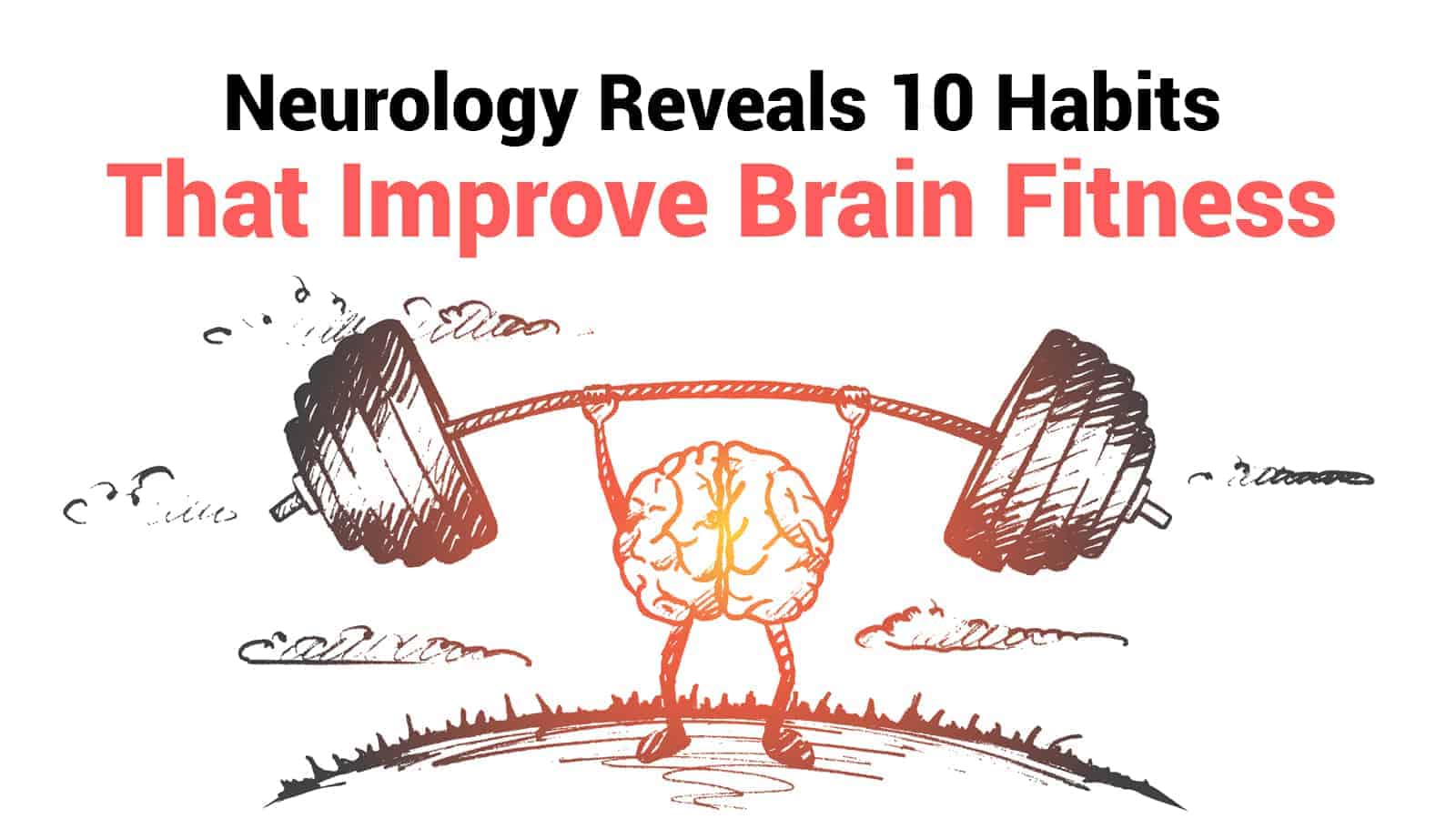If you have adopted a healthier diet and lifestyle, you know how necessary physical fitness is to your body. You needn’t be a gymnast or athlete to reap the benefits of daily exercise. What part of your regimen includes brain fitness?
Even though the brain is often called the master organ, most people don’t think much about it. Your brain stays busy 24/7 receiving and interpreting messages from your body and your environment. It simultaneously sorts and stores this data while sending commands throughout your system to keep you alive and safe.
Ways To Improve Brain Health
Are you worried about your brain health? There are many things you can do to enhance this organ and ensure you have optimal health. Here are just a few ways that you can improve brain fitness.
 1. Enjoy a Brain-Healthy Diet
1. Enjoy a Brain-Healthy Diet
When you follow a healthy diet of lean meat, fresh fruits and veggies, grains, dairy, and healthy fats, your entire body benefits. Like your other organs and vital systems, your brain needs vitamins and minerals for optimal health and performance.
While it’s a good idea to limit saturated fats and eliminate trans-fats from your diet, you still need some healthy fat to lubricate your cells and organs. According to a study published by Acta Neurologica Taiwan, your brain is composed of about 60 percent. It needs essential fatty acids to form and control neurotransmitters and other brain functions.
Don’t forget these essential fats (also called Omega-3) in your daily meals and snacks for good brain fitness. An article published by the Office of Dietary Supplements offers suggestions for foods that provide these fats. You can enjoy fish and other seafood varieties, plant oils, nuts, and seeds, per the article.
2. Have an Exercise Plan
Did you know that visiting the gym or exercising at home can also contribute to brain fitness? On the surface, you can see results in your muscle tone and strength when you work out regularly. Nevertheless, your exercise is also boosting your internal organs’ health, including your brain.
The brain benefits from working out are impressive, shares an article published by the Dana Foundation. Exercise increases blood flow to your brain and releases vital proteins for neuron health and good brain function. The article also states that regular workouts release endorphins and dopamine that are responsible for mood boosts.
3. Take a Break from Technology
Yes, our world does depend on technology for many of our daily tasks, such as working and education. Though, it’s easy for you to frazzle your mind with technology overload. An article published by Digital Marketing states that Americans, on average, spend about two hours on social media every day.
It also shares that you average about 150 sessions on our phones and media devices daily. That doesn’t even include the hours spent watching tv or streaming music. You can have more time doing physical and brain fitness activities when you trim down your technology time.
Consider taking a break to have meaningful conversations with loved ones and your friends in person. Go for a walk or find an interesting book to read.
4. Get Enough Sleep
In the middle of your busy schedule, have you ever told others that sleep was overrated? Perhaps what you mean is that you need rest but don’t get it. An article published by the Centers for Disease Control and Prevention states that at least one in every three American’s report sleep deprivation.
For the best brain fitness plan, you need to get the proper amount of sleep each night. According to an article published by the National Institute of Neurological Disorders and Stroke, your brain completes many “housekeeping” tasks while you sleep. It removes built-up toxins and performs other rejuvenating tasks.
Since everyone is different, sleep needs can vary from person to person. However, the same article suggests that most adults need between seven to nine hours of sleep each night. Younger people may need a little more, and seniors usually require a bit less.
If you feel a little sluggish and in chronic brain fog, you may be sleep-deprived. Try to make your bedroom as dark and comfortable as possible and free from technology. Reserve your bed for sleeping and romance.
5. Share Stories
Long before early humans converted their languages into written form, they depended on telling stories. Oral history, traditions, and life lessons were passed on from generation to generation, with children listening to their elders. So, these stories kept their brains active and allowed them to preserve their lives and cultures.
To tell a story, you must remember the characters and events. According to a study published by the National Academy of Sciences, both you and your listeners’ brains react in sync when you tell a story. Through MRIs, the researchers discovered that integral parts of the brain light up when both the narrator and listener are engaged in a good tale.
If you’ve lived for a good length of time, you probably have fascinating stories and anecdotes to share with others. You might also boost your creative side and make up some fun and exciting stories to tell your children or grandchildren. It’s good for brain fitness, and it’s an ideal bonding tool.
 6. Learn Something New
6. Learn Something New
Wouldn’t this be a dull world if your knowledge and skill levels were never challenged? Your brain can get bored quickly and go into a slump if you don’t present a new challenge daily. It’s all about growing and expanding your world.
Break the boredom and determine to learn something new every day. Read a book about different subjects or consider learning skills you’ve always wanted to try. Perhaps you won’t be a Beethoven or Leonardo Da Vinci, but you can still have fun learning how to play the piano or learn how to surf.
7. Try Meditation
Sometimes, your mind needs time to relax and regroup. Chronic stress can not only affect your physical health, but it also can be detrimental to your mental well-being. According to a study published by Nature Reviews Neuroscience, stress can affect your brain’s prefrontal cortex, which can lead to mental illness and other brain disorders.
You don’t have to subscribe to any religion or belief system to enjoy meditation benefits. All you need is a quiet, comfortable place to sit, relax, and let your mind go free. When idle thoughts come to mind, you acknowledge and release them in peace.
It’s a useful tool for allowing your brain to rest, filter negative thinking, and absorb positive affirmations. Even if you meditate 15-20 minutes a day at home or on break at work, you’ll see the difference. Listening to soothing music may help set the mood for your meditation work.
8. Play Games and Brain Teasers
Perhaps there’s nothing more beneficial and fun for your brain than a challenging game. Riddles and other “brain teasers” have been around since the beginning. An article published by The Paris Review mentions classic puzzles and secrets throughout the ages. These games range from Ancient Egypt, Rome, and China to the iconic crossword invented by Arthur Wynn in 1913.
When was the last time you challenged your brain with a puzzle? You can buy entire books of crosswords, find-a-word, sudoku, and other brain teasers, inexpensively in most stores. Instead of mindless internet surfing and flipping tv channels, consider doing a puzzle for brain fitness.
9. Read a Good Book
It’s always a treat to immerse yourself in a good book. Not only can you glean valuable information from nonfiction books, but they can also teach you new skills and other hobbies. You can learn a new language or read about other fascinating subjects for an excellent brain fitness goal.
Fiction also plays a significant role in challenging your brain. When you read novels and other fictional works, it expands your imagination. You must use your mind’s eyes to bring the characters and action to life. Plus, being an avid reader can stimulate your brain to cultivate better writing skills.
10. Change Up Your Routine
Are you tired of doing the same old thing day in and day out? Maybe it’s your brain’s way of telling you that you’re bored and need a change. Of course, many routines are necessary for daily living, but you can challenge your mind by changing things up a bit.
Consider little changes in your daily routine that will challenge your mind. If you are used to drinking hot coffee every morning, how about trying a cup of herbal tea? Why not add something trendy to your wardrobe? Instead of ordering the same dish at your favorite restaurant, try a new entrée.
It doesn’t have to be life-changing or a drain on your bank account. Small changes in your routine can get your mind of a rut. You’ll be amazed at the inspiration you can feel just by doing something different.
 Final Thoughts About Developing Habits for Better Brain Fitness
Final Thoughts About Developing Habits for Better Brain Fitness
You will only have one brain in this life, so you must take care of it. Good brain fitness includes keeping your mind busy and challenged every day. The more you exercise your brain, the better chances you have a sharp mind into your senior years.

















